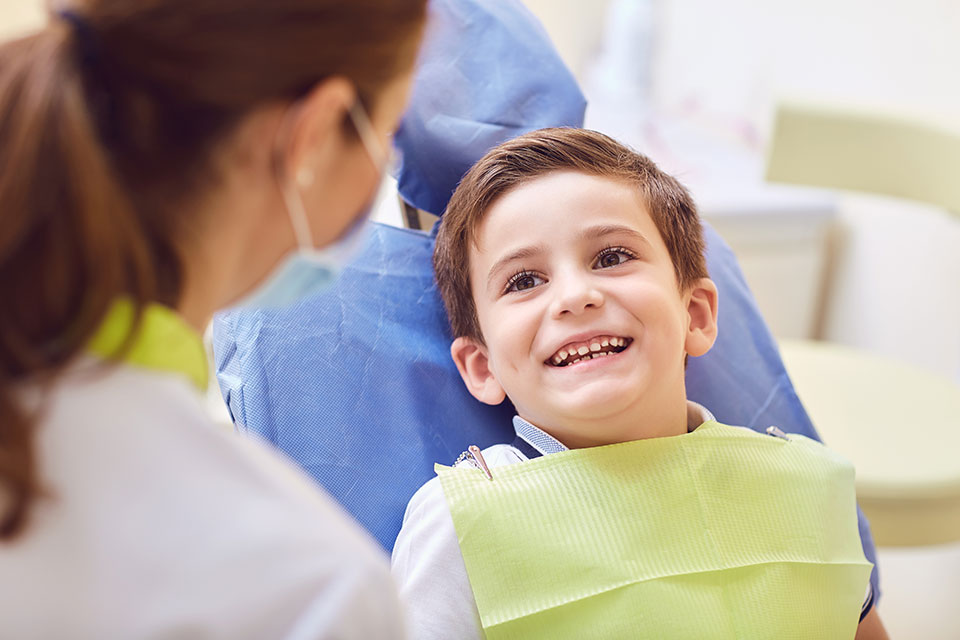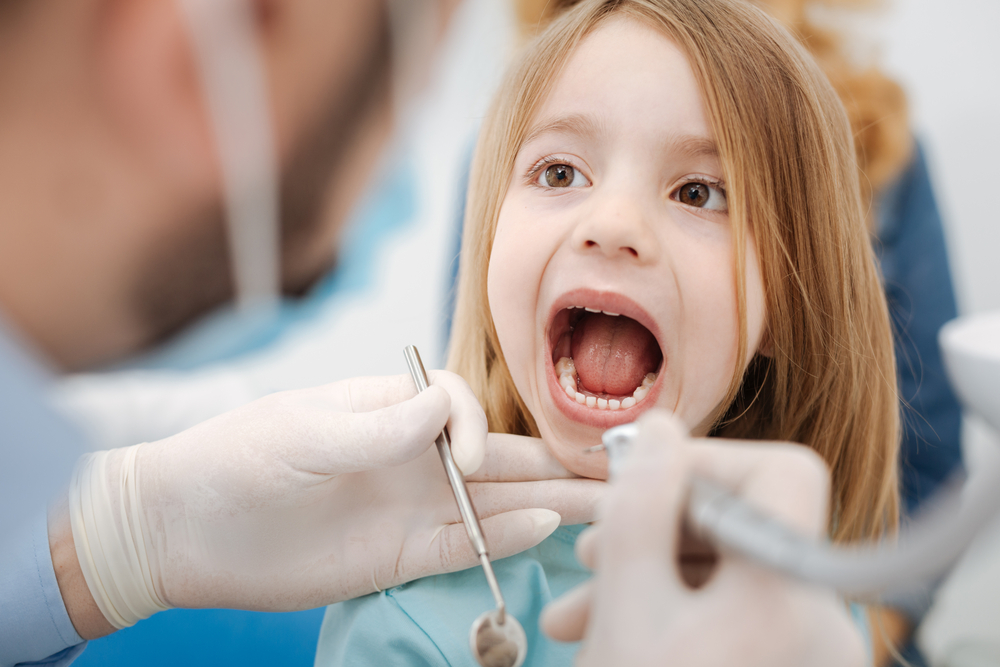Is Your Child Ready to Visit the Dentist?
Has your child reached the age where they need to start visiting the dentist? Pediatric dentistry is essential to your child’s overall health. To get started with Dr. Kevin H Gropp , contact our Northridge dental office today by calling 818-709-8645 to schedule an appointment.

What Is Pediatric Dentistry?
Pediatric dentistry is a specialized field that focuses on children’s oral health from infancy through adolescence. Parents must ensure their children’s oral health is taken care of to promote their overall health and well-being.
Pediatric Dentistry Benefits
Pediatric dentistry appointments provide various benefits, including:
- Early detection and prevention
- Age appropriate care
- Dental Education
- Specialized training
- Comfort and trust
- Prevents dental phobias
- Orthodontic assessment
- Specialized pediatric services
- Builds a lifelong dental routine
Why Pediatric Dentistry Is Important
Preventive Care
Preventive dentistry is at the core of pediatric dental care. Pediatric dentists educate parents and children about proper oral hygiene practices, including brushing, flossing, and nutrition. They may also provide treatments such as fluoride applications and dental sealants to prevent tooth decay.
Early Diagnosis
Pediatric dentists are skilled inidentifying oral health problems in their early stages. Regular check-ups help catch issues like cavities, misalignment, and developmental problems early, which can lead to more effective and less invasive treatments.
Dental Treatments
When necessary, children’s dentists perform various dental procedures tailored to the unique needs of children. These procedures can include fillings, extractions, dental emergencies, and restorative treatments, all while ensuring the child’s comfort and well-being.
Behavior Management
Children can sometimes feel anxious or fearful about dental visits, whether it’s a routine checkup or dental surgery. Pediatric dentists are trained to create achild-friendly and non-threatening environment. They use behavior management techniques to help children feel comfortable during dental procedures.
Specialized Care
Some children have unique dental needs due to medical conditions or developmental issues. Pediatric dentists have the expertise to provide specialized care for these cases, ensuring the child’s oral health is maintained.
Orthodontics
Pediatric dentists can identify early signs oforthodontic problems and may refer children to orthodontists for specialized care. They also monitor children’s dental development as they grow, ensuring timely orthodontic interventions if necessary.
Prepare Your Child for Their Dental Visit
Before your child’s dental appointment, there are several strategies you can use to simplify the process and set them up for success, including:
- Foster a positive view of the dentist.
- Schedule the appointment at a time when they’re likely to be relaxed.
- Bring their favorite toys.
- Introduce them to books or TV shows featuring their beloved characters visiting the dentist.
- Utilize positive reinforcement or offer a reward.
Your impression holds significant weight, so it’s essential to avoid using negative language in front of your young ones. Instead, you can explain the unique tools used to ensure their teeth remain healthy and gleaming. Even if you’ve had unfavorable experiences in the past, it’s vital to emphasize a positive perspective for your child.
Pediatric Dental Treatments
Pediatric dentists perform a range of dental procedures to keep children’s teeth and gums healthy. The most common pediatric treatments include:
- Dental Exams and Cleanings
- Dental X-Rays
- Dental Sealants
- Fluoride Treatments
- Dental Fillings
- Stainless Steel Crowns
- Pulp Therapy
- Tooth Extractions
- Orthodontic Evaluations
- Oral Hygiene Education
- Emergency Dental Care
- Special Needs Dentistry
These services may differ depending on the dental office that you’re visiting.

Childhood Dental Development
Stages of Dental Development
Understanding the stages of dental development in children is crucial for pediatric dentists. Primary teeth, also known as baby teeth, begin to erupt around six months of age and continue to do so until around age three. These primary teeth set the stage for the eventual eruption of permanent teeth. Monitoring this development is essential for early intervention if problems arise.
Common Dental Issues in Children
Pediatric dentists commonly address issues like tooth decay, gum disease, and misaligned teeth in children. Tooth decay, in particular, is prevalent, and pediatric dentists employ various strategies to prevent and treat it effectively.
Pediatric Dentistry Costs
The cost of pediatric dental care will vary depending on specific factors, such as the child’s age, the dental treatment needed, and the area you live in. For example, dental cleanings range between $75 to $200, whereas dental fillings may range from $100 to $300. Your dental insurance coverage will also affect how much you pay out of pocket for treatments.
Frequently Asked Questions
How can I help my child maintain good oral hygiene habits?
You can help your child maintain good oral hygiene habits by teaching them to brush twice a day with fluoride toothpaste, floss daily, and eat a healthy and balanced diet. It’s also important to schedule regular dental check-ups and cleanings with a pediatric dentist.
What if my child is afraid of going to the dentist?
Pediatric dentists are trained to help children overcome their fear and anxiety related to dental procedures. They use specialized behavior management techniques, distraction techniques, and positive reinforcement to make children feel comfortable and relaxed during dental procedures.
Schedule Your Child’s Visit With Us Today!
If you have any concerns about your child’s oral health, schedule an appointment with our children’s dentist in Northridge, CA, Kevin H Gropp, DDS . Our Northridge pediatric dentist can help your child maintain good oral hygiene habits and prevent dental problems. Contact our dental practice today at 818-709-8645 to schedule an appointment.

